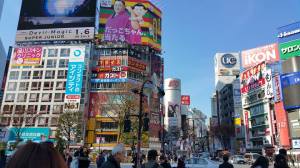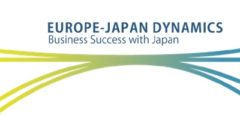Workshop
Inside a Japanese head —
How to avoid fatal mistakes with Japan
in cooperation with Swiss-Japanese Chamber of Commerce
Zurich, 19 May


What is going on inside the head of your Japanese business partner?
A unique workshop will take place enabling you to visit the inner workings of your Japanese business partners and clients.
The workshop will be interactive. You will be challenged by practical situations, which many Swiss people encounter. You will learn how to work better with your Japanese contacts and benefit more from your exposure to Japanese culture.
Please bring your specific problems and challenges with Japan to the workshop. A Japanese senior insider will examine the problems with you on site and help find solutions.
Potential problems
- “The Japanese decision-making process is so mysterious!”
- “I don’t know if I’m interacting well with my Japanese colleagues.”
- “Why do the Japanese always do things in their own way?”
- “How can I say ‘No’ to my Japanese customers without offending them?”
- More …
Who should attend?
- Executives and managers in charge of Japan for; Sales, Business Development, Global Operations, Project Management, Training, Human Resources, Communications, and more.
- Representatives of public, commercial and cultural associations who interact with Japan.
Your benefits
- To better understand the Japanese way of thinking
- To feel at ease interacting with your Japanese business partners and employees
- To discuss face to face with senior experts and clarify your pending issues with Japan
Date 18:30 – 21:30 Thursday, 19 May 2016
Location Salon Rudolf, Au Premier, Bahnhofplatz 15, 8021 Zürich (In the building of the Zurich railway station)
Program 18:30 – 20:30 Workshop, 20:30 – Aperitif and Networking
Organisation Europe-Japan Dynamics and VDF Coaching & Cultures
In cooperation with Swiss-Japanese Chamber of Commerce (SJCC)
Fees (To be paid at the door)
| SJCC Members | CHF 100.- |
| Non-SJCC | CHF 150.- |
“Come with three, pay for two” — If two persons participate from the same organisation, the third person will be free.
Registration : Please call or write to Yoshiko KURISAKI, Founder, Europe-Japan Dynamics, e-mail yoshiko.kurisaki@gmail.com / Tel. 076 411 6076
- Registration for the workshop is kindly requested by 6 May 2016.
<Attention!>
- In case of cancellation, thank you for letting us know by 6 May latest. It will allow us to give a seat to someone who needs it.
- We will be obliged to charge cancellation after 9 May or no-show to cover the costs of the workshop.
Who is Yoshiko KURISAKI?
Yoshiko, a Japanese national, is the founder and executive consultant of Europe-Japan Dynamics, a specialist of cross-cultural management between Switzerland, Europe and Japan. She has unique competence drawn upon over 20 years of business experience in Japan (NTT) and Europe (OECD and SITA). Member of SJCC. Customer testimonials àhttp://http://en.geneva-kurisaki.net/values/
Who is Verónica De la Fuente?
Verónica De la Fuente, a Chile national, has been working as an intercultural trainer and consultant in the last 15 years. Veronica is a Professional Coach certified by the International Coaching Federation (ICF). In the workshop, she will introduce the positioning of Japan in the world cultures.
Registration by 6 May 2016 Yoshiko KURISAKI, Founder, Europe-Japan Dynamics,
e-mail yoshiko.kurisaki@gmail.com / Tel. 076 411 6076
Please find a workshop flier here –> Workshop_Inside a Japanese head_May_2016_v2





